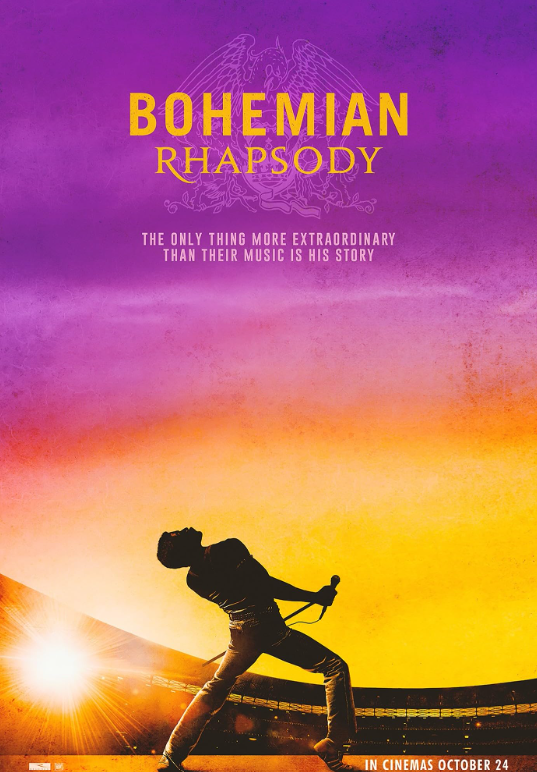On Tuesday, Feb. 20, it was announced that Sam Mendes would be directing four biopics, each following one member of the Beatles, all set for release in 2027. This specific concept has never been done before; however, it’s only the most recent addition to biopics, which have taken Hollywood by storm.
Every year, there are countless biopics released and many of them become acclaimed movies, like “Elvis,” “Bohemian Rhapsody,” “Blonde” and “A Beautiful Mind.” There are four biopics nominated for an Oscar in 2024 alone. Biopics see a lot of success in Hollywood, so studios continue to claim the rights to a person’s story, but is it ethical to do so?
Biopics profit from a real person’s hardships in life and often don’t have full consent from the person or group they are making a film about. There is a fine line between exploitation and a tribute when creating a biopic, and Hollywood often has a difficult time not crossing the line.
Society has done its part in idolizing celebrities to the point of making them feel larger than life, no longer a regular person. People often don’t see what’s wrong with biopics when the subjects of the movies are about public figures, but they deserve privacy like anyone else does. There are countless biopics that were created after the subject of the film had passed, never giving them the ability to consent to having their lives broadcast for people to watch for entertainment.
“Bohemian Rhapsody,” a biopic following Queen, won four Oscars at the 91st Academy Awards and grossed over $900 million worldwide, one of the highest grossing biopics ever. Of the four members of Queen, only two had any input on what was being included in the movie: Brian May and Roger Taylor. John Deacon had no connection with the movie and Freddie Mercury passed away in 1991. While May and Taylor did what they could to make the film a tribute to Mercury and the band, that wasn’t possible. Regardless of their intentions, both Mercury and Deacon had zero say in what part of their lives were put out for public consumption. No one could know what someone else would have wanted to share and “Bohemian Rhapsody” comes off as exploiting people’s trauma for profit.
“Bohemian Rhapsody” is one of many biopics created about people who don’t have the ability to give their consent to what parts of their life were put on display. “Elvis,” “Maestro,” “Blonde,” “Walk the Line,” “Into the Wild” and “The Iron Claw” are only a few examples of popular biopics that follow people who have passed. They have no say in how much of their life they want shared or whether a specific choice made in the film is acceptable in their own story. It’s not ethical for Hollywood to invade someone’s privacy without giving them a choice, or to exploit people’s trauma to win an Oscar.
There are times when biopics are made when the subjects are still alive and even work with them to create the film and ensure the accuracy, like in “The Pursuit of Happyness.” Chris Gardner worked as an associate producer of the movie, and gave input to ensure that the story was told in the way he wanted. While there are some examples of this, it is not usually the case. Even if a person is alive while their life is being turned into a movie, they don’t usually have anything to do with its creation.
“The Social Network,” “A Beautiful Mind” and “Nyad” are all examples of biopics that were created without consulting the person that the movie is about. Not only did they not give their consent to having the movie made, but they have no control over the story that is being created about them. All movies that are based on a true story take some liberties to make it more “marketable” and interesting, but they fail to realize the implications of these choices.
Making creative decisions and deciding to change the story of someone’s real life is a significant decision to make. The decision is normally made to give the story more of a dramatic element to keep viewers interested, but it leaves the viewer with the wrong idea. The average person isn’t going to look up the inconsistencies of a movie, and because they know that the movie is made about real life people, they will take the information presented to them as fact.
A movie can no longer be considered a tribute when the real events are manipulated to serve the production company’s main goal in making money. They just want a successful movie, not for the sake of the person that the movie is being made about, but to gain recognition and money.
It is difficult to reconcile this controversial idea of biopics with the fact that they typically become incredibly well-made movies. People are allowed to enjoy them, but they must understand that biopics are in no way factual and the implications that come with them. It is up to Hollywood to make the real change and start to truly understand the boundaries that come with creating a biopic.
While there are some biopics that were created with the right intentions, we must keep in mind whether is it possible to create a proper tribute when the person may not consent, or their story is incorrectly portrayed. The line between a tribute and exploiting someone’s story for money or fame is incredibly thin and near impossible to not cross. We will see if the upcoming four Beatles biopics will be able to give a proper tribute to the iconic rock band.
Mary DeCarlo can be reached at [email protected].



















